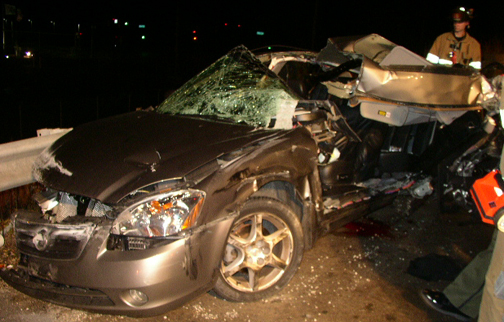When the over-stated revenue projections fail to materialize, the Gambling Industry will already have an excuse.
And Clyde can return to counting license plates.
Ban on smoking a test for Mass. casinos
Bay State law could affect their ability to compete
It is an old saw in the gambling industry that antismoking policies hurt revenue by driving away a casino’s best customers.
With Massachusetts preparing to open smoke-free gambling resorts, the industry’s conventional wisdom will be put to the test. The local casinos will have to compete with established facilities in Rhode Island and Connecticut that permit gamblers to light up.
“It will be an interesting experiment to see whether people will drive an extra two hours to smoke,” said Kevin DeSanctis, chief executive of Revel Entertainment Group, the company that owns the elaborate new Revel Atlantic City, one of the most prominent smoke-free casinos in America. It opened in April.
Casinos are among the last indoor refuges for smokers, though pressure from casino employees and public health groups is slowly driving smoking bans and partial bans onto the gambling floor.
In setting their smoking policy, Revel executives concluded that going smoke-free fit best with long-term plans to maximize nongambling revenue at the resort.
“We felt that you couldn’t do it halfway,” said DeSanctis, in an interview. “We decided to make it smoke-free and give ourselves the opportunity to learn whether this is problematic for folks who not only like to gamble but also like to smoke.”
So far, the jury is out.
“I have not received one negative comment on being smoke-free,” said DeSanctis. “I’ve received a lot of positive comments. I think it’s the way of the future.”
However, Revel’s gambling revenues have been lower than expected.
“People say [the no-smoking policy] has to be a contributing factor, and it may be, but I don’t know to what extent,” said DeSanctis. “On a long-term basis we believe it will work to our benefit, but it is way too early to tell.”
Stephanie Steinberg, founder of Smoke-Free Gaming, a Colorado-based advocacy group for casino patrons and employees, contends that smoking bans are good for a casino’s bottom line over the long term.
“We calculated that smokers die 14 years sooner than nonsmokers,” she said. “That’s 14 years of lost revenue for a casino.”
In writing the Massachusetts casino law, state legislators thought seriously about the effects of smoking policies on gambling revenue, said state Senator Stanley Rosenberg, an Amherst Democrat and an architect of the 2011 state law that legalized casino gambling. The law bans smoking in Bay State casinos.
“In making that decision [to prohibit smoking], you understand that you are affecting the economics of the facility,” Rosenberg said. Some revenue may be lost to out-of-state casinos that permit smoking. “That said, successful facilities don’t need smoking to succeed.”
Beacon Hill spent more time discussing the smoking ban than the consequences of FREE ALCOHOL.
The Connecticut tribal casinos, Foxwoods and Mohegan Sun, offer smoking and nonsmoking gambling areas. Twin River slot parlor in Rhode Island, which is seeking to expand with table games, has 121,250 square feet of casino floor space for smoking and 36,850 square feet for nonsmokers, according to a spokeswoman for the facility.
Barrow said the perception that smoking bans reduce revenue may be mistaken, and that casino operators may be at fault. Casino operators often fill their nonsmoking rooms with older and less interesting slot machines and lower-stakes table games, under the assumption that the more enticing offerings should be available for smokers, he said.
“In a sense, they create the reality that the nonsmoking area creates less revenue per customer by the way they structure the areas,” said Barrow.
He suggested that the casino industry’s view on smoking is backwards, and that a smoking ban could enhance business, especially in New England where smoking rates are generally below the national average.
“You have three-quarters of gamblers who are nonsmokers,” he said. “And given the option, they’re going to avoid being in smoke and then making a trip to the dry cleaner. I think you have the opportunity to pull people out of Rhode Island and Connecticut, especially if they’re equidistant.”
“Massachusetts is going to be an interesting test case to see whether this is a competitive advantage,” said Barrow. “I think it will be.”
http://bostonglobe.com/metro/2012/06/30/smoking-ban-massachusetts-casinos-will-test-conventional-wisdom/SXmJP5LL14RAdf6sTF9v5K/story.html




No comments:
Post a Comment